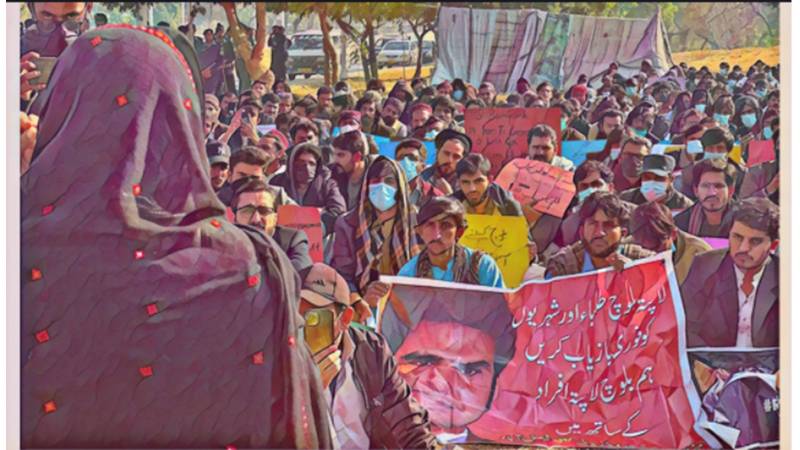
Islamabad's treatment of peaceful Baloch marchers mirrors its historical approach to Balochistan. While peaceful protests are universally recognised as a citizen's right under the umbrella of human rights, the Baloch have perennially struggled and faced resistance to exercise this fundamental right. The question arises: if not a colony, how else can we characterize Balochistan?
What perplexes a reasonable person is the dichotomy of sending a committee of ministers for negotiations on one hand while, on the other, denying the Baloch their legal status as equal citizens. If not hypocrisy, how else should one define this? The state has consistently been unjust to the Baloch, yet persistently demands fairness from them. Such inconsistency cannot create a harmonious society.
In the Baloch case, state institutions, including the Islamabad police and their superiors, lack credibility comparable to superior courts. Despite the Islamabad High Court's orders to release detained Baloch marchers, including women, children, and the elderly, the Inspector General of Islamabad falsely claimed their release. The official Twitter account of Islamabad Police echoed this misinformation, perpetuated in a media conference by a committee of federal ministers. This deception became evident as the detained individuals were being forced onto buses for deportation to Quetta.
As prominent journalist Hamid Mir pointed out, "With this deportation, the state is sending a message to Balochistan that they are a different country." When summoned back to the Islamabad High Court, the Inspector General, with witnesses like Mir, reluctantly released the individuals late at night. What is even more astonishing is the lack of repercussions for the IG and federal ministers who lied before the superior court. It raises questions about the accountability and fairness of the legal system.
Such behaviors may not be surprising for Balochistan, where such incidents are routine. However, what has caused the world and many Pakistanis to turn a blind eye to these grievances? The majority remains indifferent to Balochistan's struggles, choosing to ignore the events in Islamabad as well. If there is no reason to claim Balochistan, what motivates the Baloch to persist?
The people of Balochistan initially believed that Islamabad was a place where they could be heard directly. However, the city's response to the Baloch has diminished that belief, making it less likely for them to return to the Pakistani capital to assert their rights. Despite this, there are still people who ask, "What is the problem of the Balochis (Baloch)?"
Every time the Baloch face this question, they receive no answer. Perhaps asking the question is the sole purpose. When unheard peacefully, particularly the youth, they resort to alternative methods to voice their protests. At that point, state machineries have little moral right to question the youth joining militancy because the state itself is reluctant to negotiate when the Baloch are peaceful. The use of water cannons in freezing weather, tear gas, and arrests through baton charges are familiar tactics Baloch have endured for an extended period. While these methods do not break the Baloch spirit, they contribute to fortifying Baloch resistance.
Undoubtedly, Balochistan is currently a war zone. A conflict between state institutions and "Baloch militants" revolves around power and control of the region. In the midst of this war, state institutions exacerbate enforced disappearances of the Baloch, particularly students. These individuals are often labeled with charges of 'terrorism' and are never presented in a court of law. Some are subjected to extrajudicial killings, exemplified by the recent case of Balach Mola Bakhsh, abducted for years, as well as Zakir Majeed, Dr Deen Mohammad Baloch, Zahid Kurd Baloch, Shabbir Baloch, Asad Baloch, and several other Baloch. Beyond stimulating insurgency and fostering hatred for the state, enforced disappearances and killings in fake encounters contribute nothing positive.

